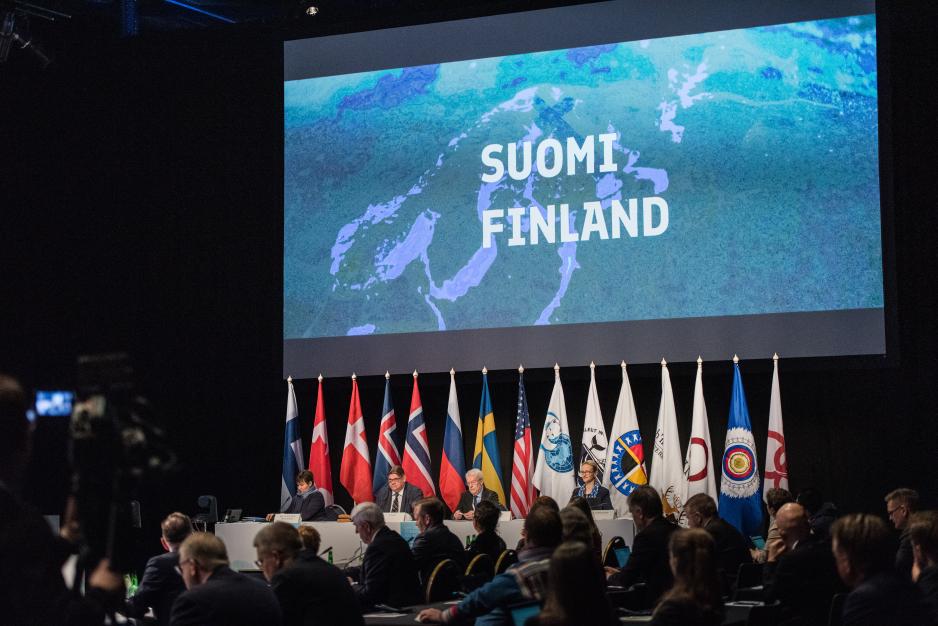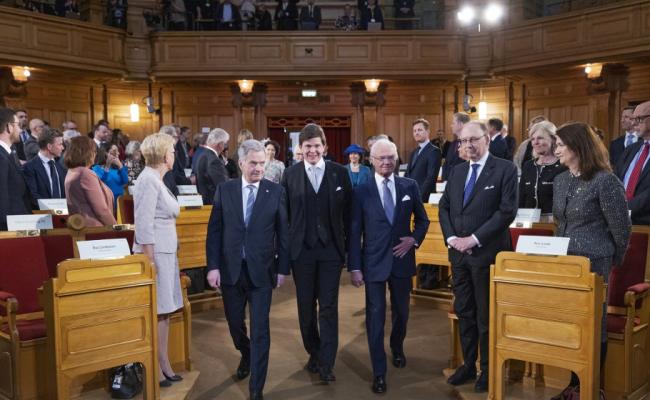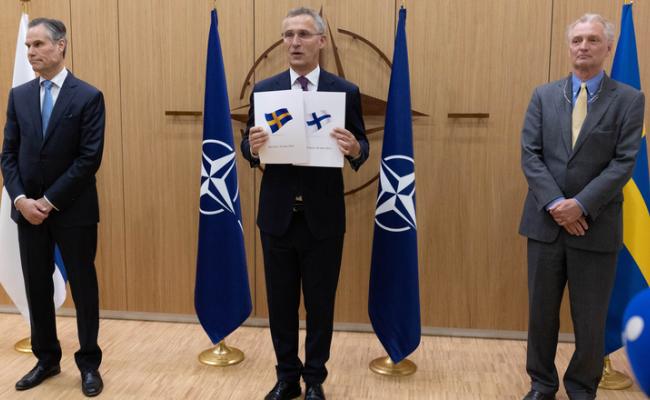New Finnish Government Report Finds More Complicated Arctic Security Environment

The 11th Arctic Council Ministerial Meeting on 7 May 2019 hosted by Finland in Rovaniemi. (Source: Jouni Porsanger / Ministry for Foreign Affairs of Finland)
A new government report on Finland’s role in the Arctic and the impacts of Russia’s invasion of Ukraine paints a challenging picture going forward for cooperation in the region.
A new report commissioned by the Finnish government takes a sober look at the security environment in the Arctic, Finland’s role in it and the pathways forward for international cooperation with Russia in the region.
This new document comes just a year and a half after Finland’s Arctic strategy was last revised. The recent events vis-à-vis Russia necessitated this new research to re-evaluate Finland’s standing in the region following recent events.
“The descriptions of Finland's Arctic policy strategy about the international operating environment and the structures of Arctic cooperation are largely no longer relevant,” the report concludes in stark language.
The report was requested by the Prime Minister’s office following the invasion of Ukraine and takes into account developments until mid-September of this year.
The study was spearheaded by Finland’s Arctic Centre at the University of Lapland, with additional contributions by the Finish Institute of International Affairs and Gaia Consulting.
Finland’s Arctic policy needs to adapt to “the realities of a new Cold War”
While Finland’s current Arctic policy from June 2021 did include aspects about increasing military activity in the region, the rapid unraveling of Arctic partnership with Russia and changes to the international relations framework have rendered large aspects for cooperation in the region infeasible.
How to cooperate with Russia
According to the report, Finland’s Arctic policy needs to adapt to “the realities of a new Cold War” where almost all connections between Finnish and Russian actors have been severed.
This holds especially true with respect to cooperation in the Arctic Council, Finland’s most important forum to working collaboratively with Russia, where all cooperation with Russia has been halted.
The impact of Russia’s war of aggression against Ukraine on Arctic cooperation and Finland are manifold. In the short- and medium-term cooperation with Russia will remain largely severed, the study suggests.
Nonetheless, it will be in Finland’s interest to pursue efforts for a “functioning relationship” with Russia when it comes to the exchange of information or cooperation e.g. in the realm of climate change, sustainable development and the role of indigenous peoples.
However, importantly, these efforts now need to be weighed appropriately with respect to Finland’s national security interests.
The report concludes that “there will be no return to the pre-war reality” and Arctic political cooperation is at least temporarily suspended, though broad underlying legal agreements e.g. through the UN, continue to exist.
Changed security environment
The invasion of Ukraine accelerated and exacerbated the deteriorating relationship with Russia and further increased tensions, which had been on the rise especially following the annexation of Crimea in 2014 and increased military activity, the report’s authors conclude.
Hard security tensions in the Arctic will become more complicated
With Finland and Sweden having applied to join NATO, this trend in Arctic geopolitics will continue with all Arctic states, sans Russia, being part of NATO.
“If the current power regime in Russia maintains its position, it seems likely that hard security tensions in the Arctic will become more complicated,” the report states.
The authors surmise that in the short term, the expansion of NATO will lead to increased regional tension in the North with Russia. In the long-term, however, a strong military balance in the Nordic region will elevate the threshold for aggression and conflict.
But stability will arise from military deterrence and less from international cooperation. The report states: “This stability is based on military force, and the space for cooperative security between the West and Russia and diplomacy will be reduced.”
Finland’s accession to NATO also necessitates “a substantial increase” in Arctic security research and the country’s role in it. In this respect, the report suggests that Finland should pursue the development of an Arctic strategy for NATO.
Scientific research and climate change
The breakdown of cooperation does not only represent a challenge from a security perspective, but it is also having a dramatic impact on scientific work, including that related to climate change.
“Climate change in the Arctic is progressing vigorously, and the significance of climate change for the Arctic cannot be overestimated,” the document states.
Since climate change is an issue that transcends national boundaries and “the suspension of research cooperation with Russia creates gaps in the knowledge base regarding Arctic climate change.”
The report also suggests that in this current state of uncertainty a new Finnish Arctic policy would be of limited use and that the time for a new comprehensive policy will be only after the situation surrounding Russia stabilizes to some degree.



